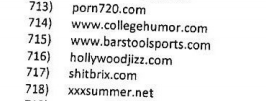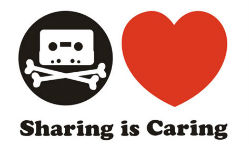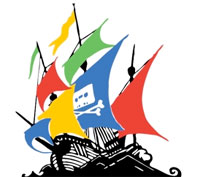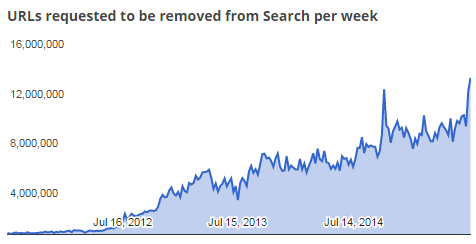India’s Porn Block Targets Torrent Sites, CollegeHumor and 9Gag
lundi 3 août 2015 à 15:29 This weekend millions of Indian Internet users started to notice that their favorite websites were no longer accessible.
This weekend millions of Indian Internet users started to notice that their favorite websites were no longer accessible.
On Friday the Government ordered local Internet providers to block access to a list of 857 websites, including many of the top porn sites.
“Your requested URL has been blocked as per the directions received from Department of Telecommunications, Government of India,” was the warning many got to see instead.
The move has sparked outrage among the public, who condemn the Government for censoring the Internet without proper cause. According to the court order the sites are being blocked because they threaten the morality and decency of Indians, which a local official has now confirmed.
“Free and open access to porn websites has been brought under check. We don’t want them to become a social nuisance,” a spokesman at the Department of Telecommunications told Reuters.
The Government order is quite broad, and not just because of the high number of domain names involved. A leaked copy which list all of the affected domains reveals some unsuspected entries.
For example, the list contains two of the largest torrent sites, Kickass.to and H33t.to. The first is now operating under the new Kat.cr domain name and the latter site is down, so the effects of the blockade are minimal.
 While blocking these torrent sites may be justified as both sites do link to pornographic content, the same can’t really be said for CollegeHumor and 9Gag, which are also on the blacklist.
While blocking these torrent sites may be justified as both sites do link to pornographic content, the same can’t really be said for CollegeHumor and 9Gag, which are also on the blacklist.
The same goes for Liveleak, which has plenty of ‘immoral’ videos but isn’t really known for its vast amounts of porn. Finally, the list also includes nonvegjokes.com, a site specializing in dirty jokes.
The blocking order was issued under Rule 12 of the local Information Technology Rules, which allows the Government to block access to sites that are deemed to violate the integrity or security of India.
The Government still has to justify its blocking request before the end of the month. If those arguments prove insufficient, the court order may be overturned again. In the meantime, the interest in circumvention tools such as VPN services and proxy sites is expected to skyrocket.
Source: TorrentFreak, for the latest info on copyright, file-sharing, torrent sites and the best VPN services.
 As the bastion of online piracy, The Pirate Bay has become one of the most censored websites on the Internet in recent years.
As the bastion of online piracy, The Pirate Bay has become one of the most censored websites on the Internet in recent years. This week we have three newcomers in our chart.
This week we have three newcomers in our chart.  Political scientists have this concept called
Political scientists have this concept called 
 In the hope of steering prospective customers away from pirate sites, copyright holders are overloading Google with DMCA takedown notices.
In the hope of steering prospective customers away from pirate sites, copyright holders are overloading Google with DMCA takedown notices.